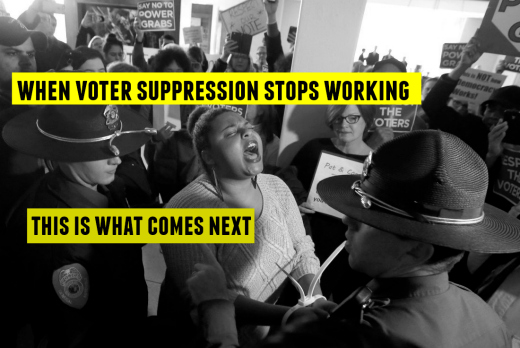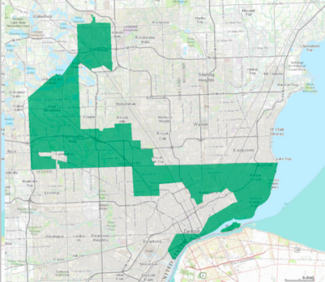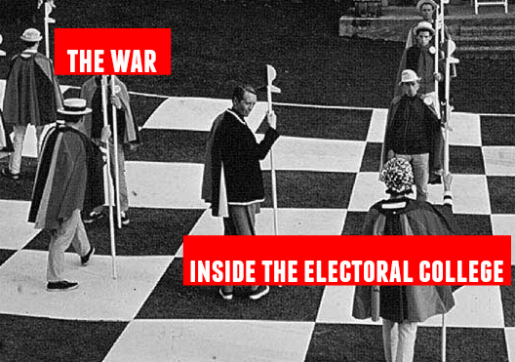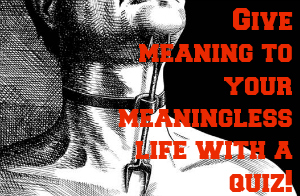Continuing our recent conversation about how to exist in the post-fact word of Donald Trump, I thought I’d share a few brief notes from a panel discussion I attended at the University of Michigan a couple of weeks ago titled Covering Trump: The Presidency and the Press in Turbulent Times. The panel, which featured Craig Gilbert of the Milwaukee Journal Sentinel, Tracy Jan of the Boston Globe, Laura Meckler of The Wall Street Journal, Jon Morgan of Bloomberg News, Katie Zezima of The Washington Post, and U-M Professor of Political Science Vincent Hutchings, was organized by Lynette Clemetson, director of Wallace House, the U-M entity which, among other things, oversees the Knight-Wallace Fellowships for Journalists. What follow are the seven things that most struck me.
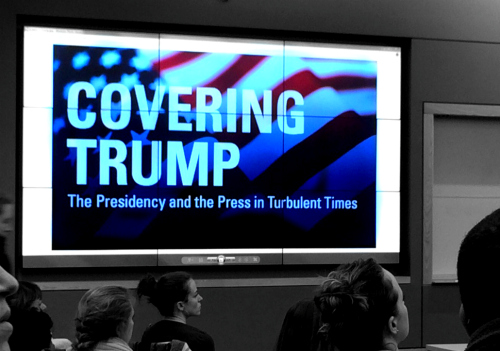
THE CANDIDATES SAW, AND TREATED, THE PRESS DIFFERENTLY… Laura Meckler from The Wall Street Journal noted how accessible Trump was. While it was her job to cover Clinton during the campaign, she told us about the one time she had to reach out to Trump’s team for a comment. The way she described the assignment in question, it wasn’t anything significant, just a small story that she was writing from the campaign trial that required a few minutes of the candidate’s time. She said that her request was immediately granted, and her brief phone call with Trump turned into a half hour long conversation. And this, she reiterated, was just for a small story about a candidate that she wasn’t even really covering. In comparison, she said, Clinton, whom she was following every day, only spoke with her directly once. And that time, according to Meckler, was only given grudgingly, in accordance with a deal that was struck between the Clinton campaign and the three largest papers. Each, according to the terms of the deal, was given 10 minutes with the candidate after she clinched the Democratic nomination. [Meckler said their discussion went long, lasting 17 minutes, but those were the only 17 minutes she had with the candidate in the months that she traveled with her.] Others on the panel, all of whom covered the candidates during the campaign in some capacity, echoed this observation that Trump was much more accessible to the press, at least prior to the election. Someone on the panel, I can’t recall if it was Meckler or not, attributed Clinton’s dislike of the press to things that had been written about her in the past… I wrote in my notebook that someone on the panel had described Secretary Clinton as having been “scarred” by encounters with the press earlier in her life… As someone who found himself getting angry with the press for the excessive coverage of Trump during the campaign, it was interesting to hear that, at least from the perspective of these panelists, that some of that may have been the fault of Clinton, who didn’t even speak with the press assigned to follow her on the campaign trail.
VINDICTIVENESS AND THE GROWING OPACITY OF THE TRUMP ADMINSTRATION… There was also, however, much discussion of Trump’s vindictiveness during the campaign, which resulted, at one point, in a ban against reporters from the Washington Post, Politico and Buzzfeed, none of whom were allowed to travel with the candidate, attend press events, etc. While their press credentials were eventually returned, Katie Zezima of The Washington Post said that, for a while, she and reporters from these other organizations had to stand in line for hours on end at each Trump rally, waiting to enter along with the public, instead of just being able to walk in with the press. [If I’d had an opportunity, I would have asked how, if at all, the threat of banishment, now that it’s been established, might impact coverage of Trump once he becomes President.] And the panelists acknowledged that, despite his general availability, at least while on the campaign trail, they’re concerned that his administration may be even less transparent and open than Obama’s is now. The panelists seemed to agree that a trend away from transparency has been growing over the past several administrations, especially as Presidents have started bringing in their own media teams that can shoot videos and release them directly to the web, without having to rely on the White House press corps as an intermediary. This, they all seemed to agree, is likely to be even worse under Trump, who has already begun distancing himself from the press. [Trump, as you may recall, has already begun refusing to travel with representatives of the press, in violation of established protocol. He’s also appointed the CEO of Breitbart News, Steve Bannon, to be his chief White House strategist, which would seem to indicate a desire on his part to establish a direct communications channel with the members of his far right base.]
HOW DO YOU FIGHT AN OPPONENT THAT CAN COMMUNICATE DIRECTLY WITH 17 MILLION PEOPLE VIA TWITTER, ESTABLISH HIS OWN TRUTH, AND DICTATE THE NEWS CYCLES… The panelists talked at some length about the conversations taking place in their newsrooms about how to write about Trump. They talked about the memos being sent from their editors and publishers about the use of phrases like “alt-right,” and when to say “lie” as opposed to “falsehood.” The panelists made it clear that, while they want to be seen as neutral, they also don’t want to contribute toward the normalization of that’s occurring… While I understand the spot they’re in, I can’t help but think that, while they’re agonizing about whether or not to call lies and white supremacy what they really are, the other side is just growing stronger and stronger. [I didn’t ask them, but I would have been curious to know what they made of the fact that, in the immediate run-up to the election, Breitbart seemed to be outperforming the likes of the New York Times and CNN on social media.] Again, I appreciate the fact that they’re struggling with how to be precise with their language, as it’s important, and I love the fact that they take their positions as custodians of the truth seriously, but it feels like, while our best journalists are tied up with the minutia of how to respond responsibly to this new world that we’re facing, the other side just keeps right on going, spreading lies and dissemintating conspiracy theories. I’m not sure what the proper response should be. I wouldn’t advocate getting into the mud with them, and fighting them at their own game, but, at the same time, I didn’t leave this panel discussion feeling as though these brilliant, well-intentioned journalists really had a clue as to how to go about combatting the enormous challenge posed by those who traffic in, and benefit from, fake news… In fact, at one point during the conversation, the fellow from Bloomberg said, “I’m not sure how you fight it.” Tracy Jan, at least according to my notes, then said that a significant number of voters didn’t care about the truth any more. She said it was right on the cover of the New York Times that Trump’s so-called “Birther” claims were lies, but that didn’t change anything. [I believe Jan was referencing this headline from September 16: “Donald Trump Clung to ‘Birther’ Lie for Years, and Still Isn’t Apologetic”] You could hear in her voice how bewildering she found this. It should mean something to call a presidential candidate a “liar” in bold type across the front page of the New York Times, but yet it didn’t… On a positive note, a panelist or two noted that news literacy initiatives were underway. One just hopes they’re up to the challenge.
2008 WAS NOT A “REALIGNING ELECTION,” AND NEITHER WAS 2016… Professor Hutchings said that there was talk when Obama was first elected that it was a “realigning election,” a fundamental break with what had come before, like in 1932, with the dawning of the New Deal. People in 2008 talked about a generational shift, he said, pointing to the fact that America was becoming a more diverse nation. People speculated that Americans would continue to elect liberal Presidents. In retrospect, Hutchings argued, that doesn’t seem to be the case. Obama wasn’t the first of many Presidents in the same mold. The woman from the Wall Street Journal who was on the panel said that she, and others, thought that this would be an election of “demographic destiny,” but came to realize that demographics and destiny are not one in the same. [Someone mentioned voter suppression having played a role. Someone else said that Clinton was “the worst television candidate since Nixon.”] Hutchins, continuing to argue that this wasn’t a realigning election, said that there’s no evidence that the electorate is changing their preferences, as happened in the Reagan years, when a number of Democrats voted for the actor turned politician. 90% of self-identified Republicans, Hutchings said, voted for the Republican this past election. And 89% of self-identified Democrats, he said, voted for the Democrat. What did change, however, is that the African American vote did not turn out for Clinton the way it had for Obama. Hutchings went on to say, only 37% of white voters, according to exit polls, cast their ballots for Clinton during the general election. That, he said, was the weakest white turnout for a white candidate since Mondale. Obama, he added, got 39% of the white vote in 2012. It was the historic black turnout that got Obamba the win in 2012, he said. “Massive minority turnout did it.”
THE POLLS WEREN’T AS WRONG AS SOME OF US THOUGHT… Professor Hutchings, when asked why the polls had it so wrong, essentially said that the polls weren’t wrong, at leas for the most part. He said the national polls showed Clinton winning the popular vote by approximately 2%, which is essentially what happened. What was off, he said, were the state polls, especially in those states, like Michigan, that weren’t thought to be battleground states, but ended up being just that. In those states, he said, polls were done less frequently, and didn’t capture the changes in the last week, as previously undecided voters migrated toward Trump. The campaigns, however, had better internal polling, he said, which is why we saw Obama making a last-minute trip to Michigan the day before the election. The journalist from the Milwaukee Journal Sentinel on the panel said that not one poll in Wisconsin for over a year and a half showed Trump winning. Trump, he said, even cancelled his last campaign rally in Wisconsin. “He didn’t think he had a shot,” he said. And Clinton never even came. Not once. But, he said, they’d stopped polling a week out, when 15% of voters were still undecided. And, as we know now, these reluctant voters, who didn’t really like either candidate, chose Trump 2 to 1 over Clinton. They didn’t like him, he said, but they chose him over Clinton. This, he said, was an unusual election as the two candidates had such “historically high negatives.” Hutchings also pointed out that fewer voters supported Trump than Romney, but they just happened to be in the right places. He also said that it didn’t surprise him that white women voted overwhelmingly for the white male candidate, as they’ve been doing that forever. [I need to factcheck this, but, in my notes, I have written that Trump received more votes from white women than any Republican candidate since 1964. Could that possibly be true?]
ARE OUR PAPERS PREPARED TO FIGHT… Someone asked whether or not our nation’s newspapers, which are struggling financially, might have the wherewithal to fight a big, costly court battle, like the Washington Post did in the Pentagon Papers case. Given Trump’s vow to “open up” libel laws to make suing the media easier, I thought that it was a great question. And no one on the panel, as I recall, came forward to say that, yes, our biggest papers were ready for a fight of that magnitude. In fact, the representative from Bloomberg, as I recall, took the opportunity to suggest that some of our larger papers were so weak financially that they could sell to people with agendas of their own.
DID THE PRESS IGNORE THE WHITES OF MIDDLE AMERICA… As you might expect, there was a lot of talk as to whether or not our panelists, and their fellow journalists, missed what many now see as the big story of 2016 – the backlash of rural and suburban white America against the status quo. Tracy Jan of the Boston Globe said that her paper didn’t “ignore the middle.” The Boston Globe, she said, ran a four-month series on rural areas of America and how the economy had failed the people there. But, she said, those stores just “weren’t as tweetable.” [And, yes, it came across as defensive, but I can see how I’d be defensive too, if I were a journalist essentially being blamed for the ascension of Trump.] Someone else on the panel said, “We did our job. People learned a lot about Trump thanks to our coverage.” Craig Gilbert of the Milwaukee Journal Sentinel, however, accepted that, to some extent, he and his paper focused too much on their own back yard, where they lived, and where their subscribers lived. Speaking of the Trump supporters, he said, “They aren’t our readers, living by us.” And he acknowledged that was a “weakness.”
There was a lot more. They talked about the gutting of the Voting Rights Act, the consortiums that have grown up around fact-checking, the impact of third party candidates, and quite a few other things. But, if you’re interested in any of that, you’re going to have to check out the video, which I just discovered is online. [If you watch, be sure not to fast-forward by the 1:23-mark, where you’ll see me looking for a seat.]

